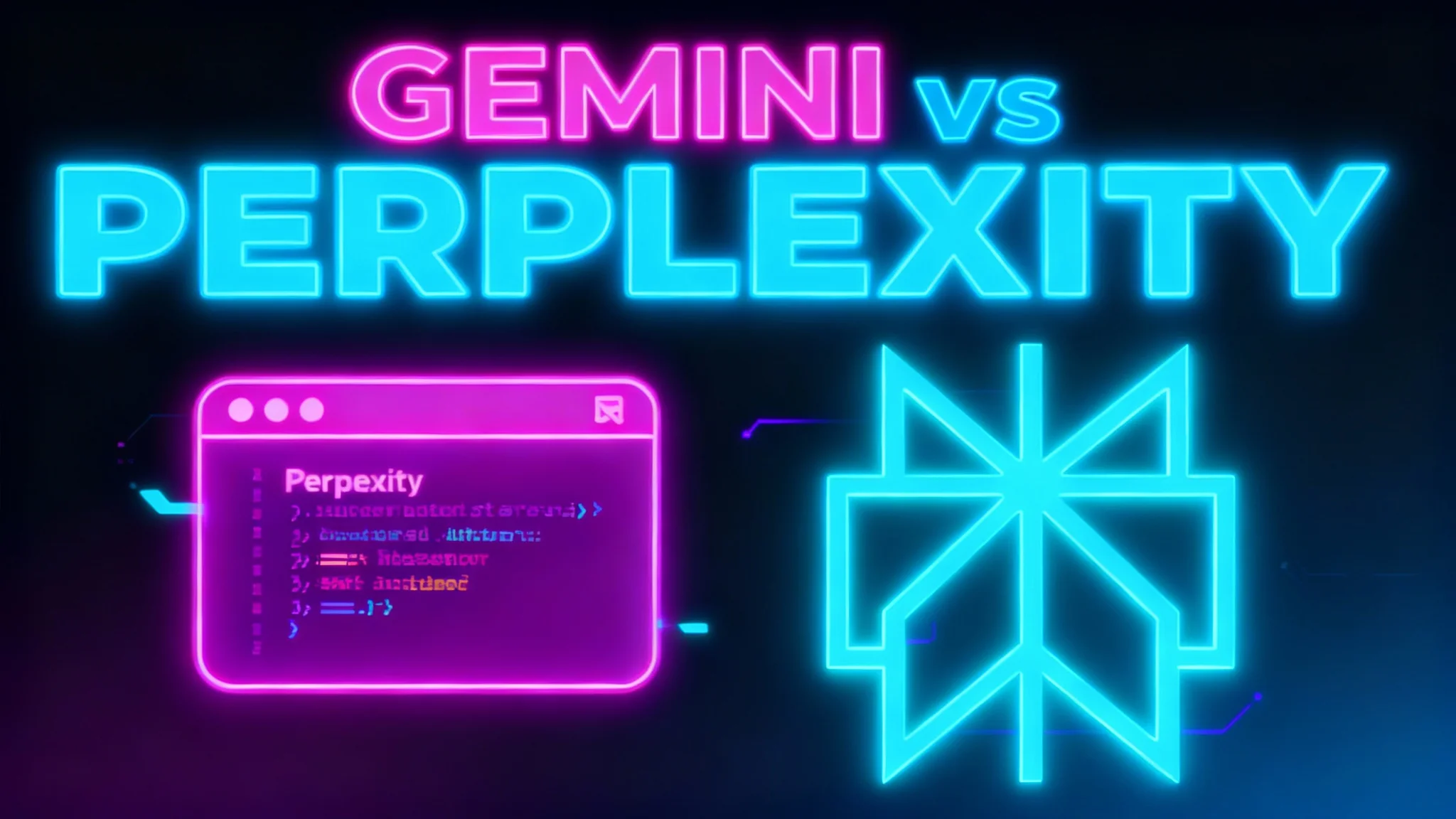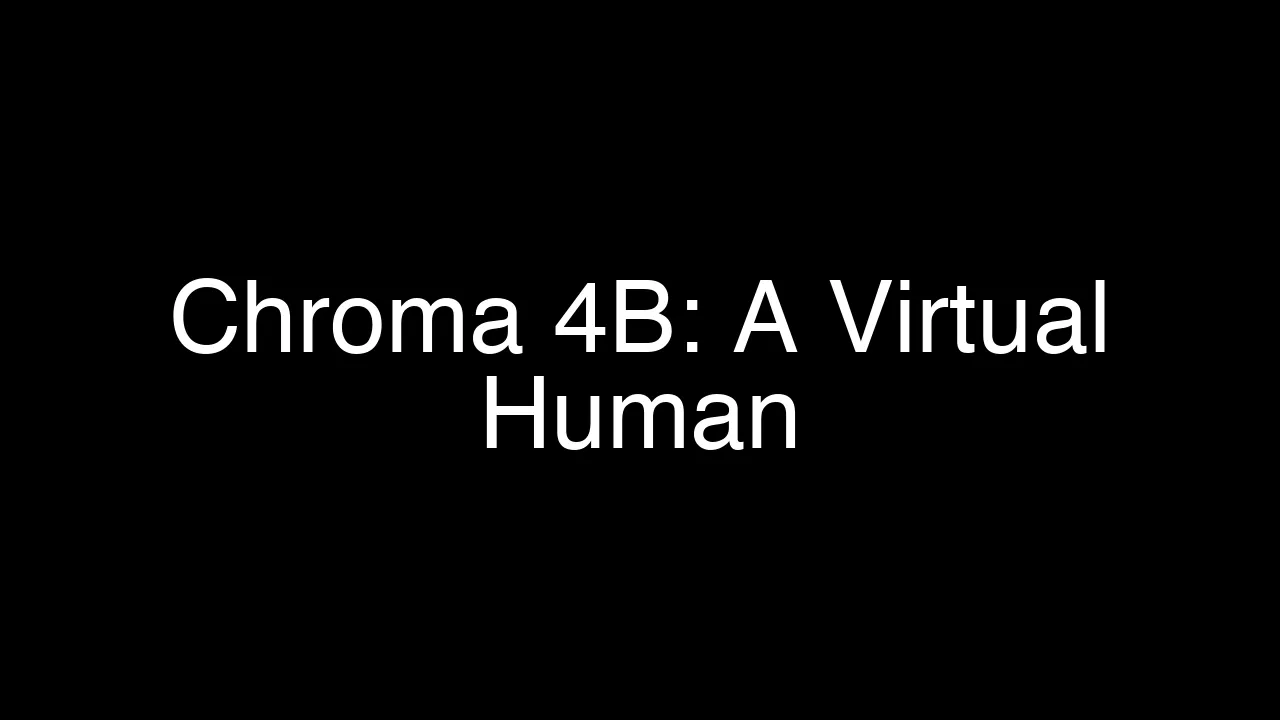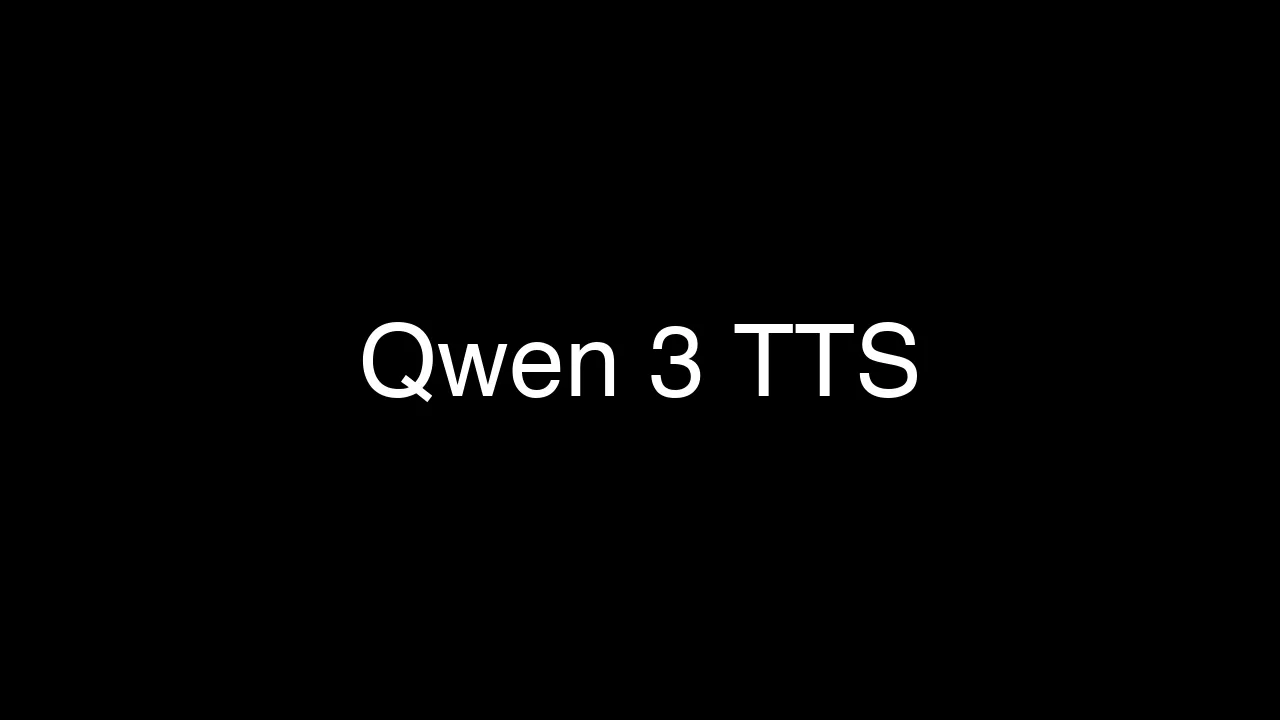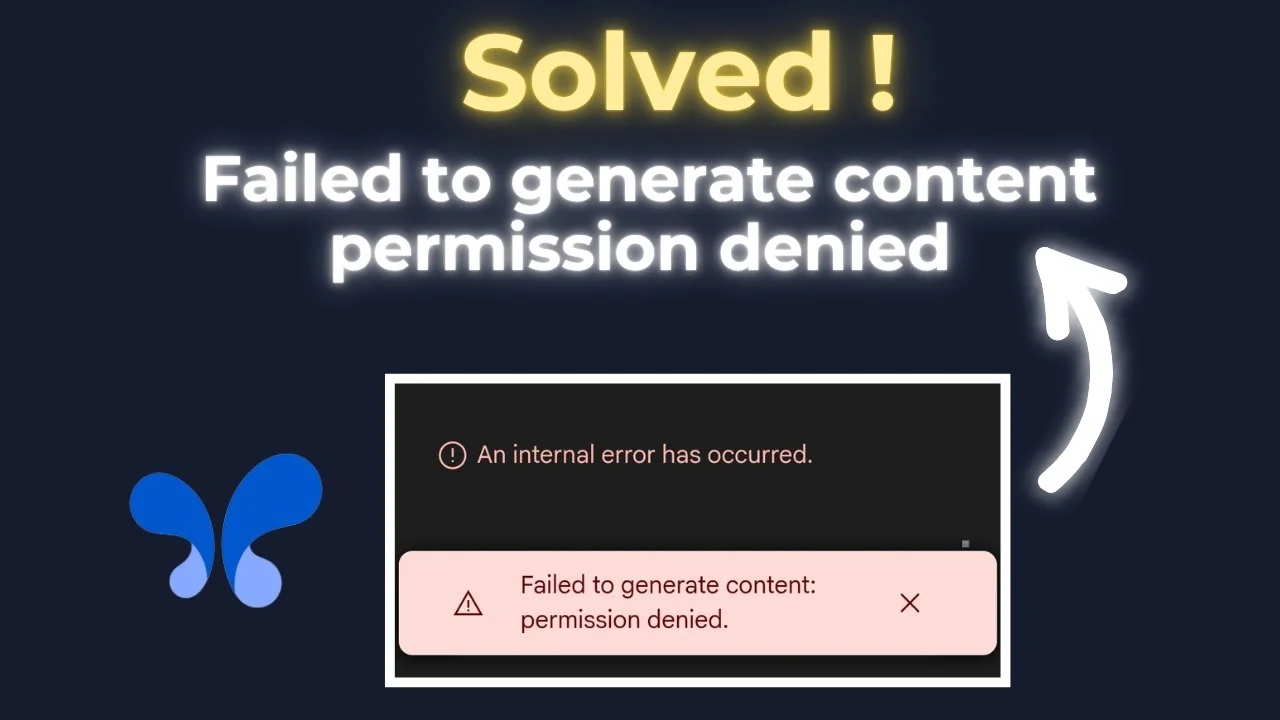Table Of Content
- Google Gemini vs Perplexity AI Quick Comparison
- Individual Tool Analysis
- Perplexity AI at a Glance
- Google Gemini 2.5 at a Glance
- Google Gemini vs Perplexity AI Comparison
- The Test Suite I Ran
- Test 1: Live Facts and Citations
- Test 2: Complex Reasoning and Structured Output
- Test 3: Image Understanding
- Test 4: Browser Automation
- Test 5: Creative Writing
- Speed and User Experience
- Summary Matrix
- Pros and Cons
- Perplexity AI: Pros and Cons
- Google Gemini 2.5: Pros and Cons
- Use Cases
- Use Perplexity AI when…
- Use Google Gemini 2.5 when…
- Using Both Together
- Pricing Comparison
- Final Verdict

Google Gemini vs Perplexity AI (2025)
Table Of Content
- Google Gemini vs Perplexity AI Quick Comparison
- Individual Tool Analysis
- Perplexity AI at a Glance
- Google Gemini 2.5 at a Glance
- Google Gemini vs Perplexity AI Comparison
- The Test Suite I Ran
- Test 1: Live Facts and Citations
- Test 2: Complex Reasoning and Structured Output
- Test 3: Image Understanding
- Test 4: Browser Automation
- Test 5: Creative Writing
- Speed and User Experience
- Summary Matrix
- Pros and Cons
- Perplexity AI: Pros and Cons
- Google Gemini 2.5: Pros and Cons
- Use Cases
- Use Perplexity AI when…
- Use Google Gemini 2.5 when…
- Using Both Together
- Pricing Comparison
- Final Verdict
Two AI tools are competing for a top spot right now: Google Gemini and Perplexity AI. I tested them side by side with the same prompts and the same tasks to see where each one excels and where it struggles.
The key insight is simple. Perplexity is built for live research with clear citations and quick verification. Gemini is built for complex reasoning, multimodal understanding, and browser automation. If you pick the wrong one for your task, you’ll waste time and miss results.
Here’s the bottom line from my testing. For fast research with real sources and links, Perplexity wins. For complex planning, image analysis, and automation that can actually control a browser, Gemini wins. Most people will benefit from using both, and I’ll show you exactly when to pick each one.
Google Gemini vs Perplexity AI Quick Comparison
| Category | Perplexity AI | Google Gemini 2.5 | Winner |
|---|---|---|---|
| Live web research and citations | Best-in-class citations with clickable sources and in-line attribution | Decent retrieval, but citations are less clear | Perplexity |
| Complex reasoning and structured output | Good, but formatting can be loose | Excellent structure, step-by-step reasoning, clean formatting | Gemini |
| Image understanding | Basic | Strong multimodal analysis with actionable guidance | Gemini |
| Browser automation | Not supported | Computer Use can control a browser: open tabs, click, fill forms, extract data | Gemini |
| Creative writing | Concise and punchy | Creative and more structured | Tie (slight edge to Gemini for formatting) |
| Speed and user experience | Very fast on mobile; recent upgrades improved clarity | Excellent desktop formatting; mobile is less refined | Perplexity on mobile, Gemini on desktop |
| Best for | Research, fact-checking, citation-heavy tasks | Planning, automation, image-based tasks, complex outputs | Depends on task |
Individual Tool Analysis
Perplexity AI at a Glance
Perplexity focuses on live web retrieval, real-time facts, and verifiable sources. The recent mobile updates improved speed and citation clarity, making it an efficient research companion on the go.
Its core strength is transparency. Answers come with in-line citations tied to specific claims, and each link is clickable. That makes it ideal for anyone who needs to trust the information and trace it back to original sources quickly.
Google Gemini 2.5 at a Glance
Gemini 2.5 introduces a thinking mode that reasons through problems step by step. It also includes Computer Use, a capability that can control a browser: opening tabs, clicking buttons, filling out forms, and navigating websites. Beyond Gemini, only one other major model supports this type of agent-style interaction right now.
Gemini is also strong at multimodal tasks. It can interpret screenshots, diagrams, and other images, then explain what’s wrong and suggest practical fixes. When you need structured output, clear headers, tables, and week-by-week plans, Gemini shines.
Google Gemini vs Perplexity AI Comparison
The Test Suite I Ran
I ran five tests to see how each tool performs on core tasks:
- Live facts and citations
- Complex reasoning and structured output
- Image understanding
- Browser automation
- Creative writing
The results show which tool you should pick for specific jobs.
Test 1: Live Facts and Citations
I asked both tools to summarize the day’s top AI news with three sources and links. Perplexity delivered within seconds. The response had three clickable sources labeled next to the relevant claims, so I could verify each point instantly.
Gemini answered too, but its sourcing was less direct. It mixed knowledge base content with some retrieval, and the citations were not in-line. I had to dig through the response and supporting links to trace claims. For fast fact-checking, Perplexity is the clear winner.
If your work depends on traceable references—journalism, research, or citation-heavy content—Perplexity gives you the confidence and speed you need.
Test 2: Complex Reasoning and Structured Output
I asked both tools to plan a four-week study schedule for a beginner learning Kubernetes, with daily tasks and checkpoints. Gemini 2.5 stood out immediately. It produced clear headers, numbered lists, a week-by-week structure, daily steps, and end-of-week checkpoints. The reasoning was explicit and easy to follow.
Perplexity produced a reasonable plan, but it wasn’t as well-organized. Formatting was uneven, and the progression was less clear. For complex planning and any task where clean structure matters, Gemini wins.
Test 3: Image Understanding
I uploaded a website screenshot with multiple errors and asked both tools to explain the issues and suggest fixes. Gemini excelled. It identified the errors quickly, explained what they meant, and proposed practical fixes with context. The multimodal reasoning felt dependable and directly useful.
Perplexity attempted an answer but missed details and provided a surface-level read. For any task involving screenshots, diagrams, or images that require analysis, Gemini is well ahead.
Test 4: Browser Automation
This test was the most striking. I asked Gemini to extract product prices from a website using its Computer Use feature. Gemini opened the page, navigated the interface, found product elements, and compiled the prices into a list—autonomously.
This capability opens the door to tasks like:
- Data extraction and monitoring
- Form filling and QA testing
- Repetitive web tasks that burn hours
Perplexity cannot perform browser automation. It’s focused on answers, not actions. For web task execution, Gemini is the only choice here. That said, the feature has limits. It can make mistakes and sometimes needs supervision. Still, the ability to carry out steps in a real browser is a major advance in practical automation.
Test 5: Creative Writing
I asked both tools to write a 90-second script about AI safety in a sarcastic tone. Both produced strong drafts. Perplexity’s version was crisp and punchy. Gemini’s was a bit longer, more detailed, and better structured for performance.
This one is close. If you want concise, Perplexity is solid. If you value formatting and structure baked into the draft, Gemini has a slight edge. Overall, this category is a tie.
Speed and User Experience
I tested both on desktop and mobile. Perplexity’s mobile experience is excellent—fast, smooth interactions, and clear citations right where you need them. Gemini’s desktop experience is strong, with clean formatting and solid support for tables and headers. On mobile, Gemini feels less refined than Perplexity, though still usable.
Summary Matrix
| Feature/Test | Perplexity AI | Google Gemini 2.5 | Result |
|---|---|---|---|
| Live facts and citations | Fast, precise, reliable sourcing | Less clear sourcing | Perplexity |
| Complex planning | Decent structure | Highly organized, step-by-step | Gemini |
| Image analysis | Basic | Strong multimodal reasoning | Gemini |
| Browser automation | Not supported | Computer Use enabled | Gemini |
| Creative writing | Concise and sharp | Structured and detailed | Tie |
| Mobile UX | Very strong | Adequate | Perplexity |
| Desktop UX | Good | Excellent formatting | Gemini |
Pros and Cons
Perplexity AI: Pros and Cons
-
Pros:
- Citation-first responses with clear links and attributions
- Rapid live web retrieval for current events and research
- Excellent mobile experience with recent upgrades
-
Cons:
- Less structured for complex multi-week plans
- Basic image analysis
- No browser automation or agent-style actions
Google Gemini 2.5: Pros and Cons
-
Pros:
- Strong step-by-step reasoning and structured outputs
- Multimodal understanding for screenshots and diagrams
- Computer Use for real browser interaction and automation
- Excellent formatting for headers, lists, and tables
-
Cons:
- Citations are less direct for quick verification
- Mobile app experience is less refined than Perplexity
- Automation can make mistakes and may require supervision
Use Cases
Use Perplexity AI when…
- You need live facts with verifiable sources and clickable links.
- You’re producing citation-heavy content that must stand up to scrutiny.
- You want fast research on current news, trends, and real-time updates.
- You’re working primarily on mobile and want quick, traceable answers.
Use Google Gemini 2.5 when…
- You need complex reasoning with clean, structured outputs.
- You’re planning multi-step projects and want a clear weekly or daily breakdown.
- You’re analyzing images or screenshots and need actionable fixes.
- You want to automate tasks in a real browser: navigation, form fills, and data extraction.
Using Both Together
I use Perplexity for research and fact-checking, then switch to Gemini for planning, multimodal tasks, and automation. This pairing covers both information gathering and execution. It also reduces friction: you research with confidence, then act on that research with a tool built for structured thinking and hands-on tasks.
The mistake is trying to force one tool to cover everything. Pick the right tool for the task, and you’ll get faster, cleaner results.
Pricing Comparison
Pricing was not part of these tests and was not covered in the script. This comparison focuses strictly on capabilities, performance, and task fit.
Final Verdict
Here’s the simple rule. Use Perplexity when you need fast, verifiable research with clean citations. Use Gemini when you need structured reasoning, image analysis, or browser automation. If your work spans both needs, use both. That’s what I do, and it saves hours every week.
Perplexity wins on live facts and citations. Gemini wins on planning, multimodal tasks, and real browser actions. Creative writing is a draw, with a slight edge to Gemini for format. On mobile, Perplexity feels faster and clearer; on desktop, Gemini’s formatting stands out.
Match the tool to the job. Research with Perplexity. Plan and automate with Gemini. That simple shift turns each session into measurable output instead of trial and error.
Related Posts

Chroma 4B: Exploring End-to-End Virtual Human Dialogue Models
Chroma 4B: Exploring End-to-End Virtual Human Dialogue Models

Qwen3-TTS: Create Custom Voices from Text Descriptions Easily
Qwen3-TTS: Create Custom Voices from Text Descriptions Easily

How to Fix Google AI Studio Failed To Generate Content Permission Denied?
How to Fix Google AI Studio Failed To Generate Content Permission Denied?

